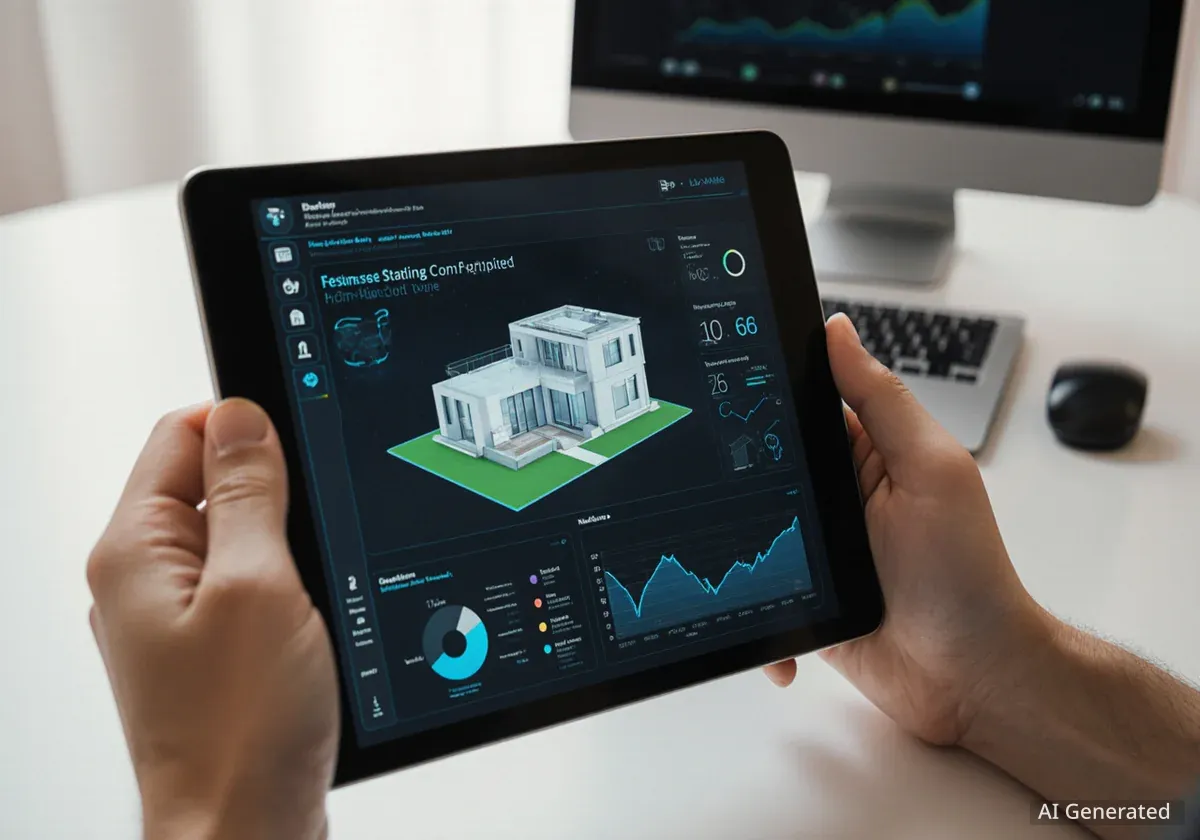The real estate industry is experiencing a rapid transformation driven by new artificial intelligence (AI) technologies. Companies are launching advanced tools designed to streamline operations, enhance client interactions, and provide deeper market insights for agents and consumers alike. These innovations aim to make buying, selling, and managing properties more efficient and informed.
Key Takeaways
- Zillow Pro consolidates agent tools, offering AI-powered features for client management and insights.
- New AI assistants and messaging tools are enhancing communication between agents and clients.
- Advanced visual tools, including satellite views and AI-driven renovation planning, are improving property assessment.
- Partnerships and acquisitions are expanding the reach and capabilities of these new technologies across the sector.
Zillow Pro Unifies Agent Resources
Zillow has introduced Zillow Pro, a new product suite designed to integrate essential tools for real estate agents. This platform brings together features like Follow Up Boss, My Agent, and Agent Profiles, aiming to create a more cohesive workflow. The core of Zillow Pro lies in its AI-powered capabilities, which provide agents with valuable consumer insights.
The integration of these tools allows agents to manage their client relationships more effectively. They can track interactions, personalize communication, and gain a better understanding of client preferences. This unified approach helps agents optimize their time and focus on closing deals.
Fact Check
Zillow Pro incorporates AI to analyze consumer data, helping agents tailor their strategies and enhance engagement.
Enhanced Communication and Client Engagement
Several companies are focusing on improving communication within the real estate ecosystem. TechZillow, for instance, has unveiled a new messaging tool. This tool aims to facilitate seamless conversations between agents and clients, ensuring timely responses and clear information exchange.
In a related development, TecheXp has launched an AI assistant. This assistant is designed to help agents with various tasks, from scheduling appointments to answering common client questions. The goal is to free up agents' time, allowing them to concentrate on more complex aspects of their work.
"Effective communication is the backbone of any successful real estate transaction. These new AI tools are designed to make that process smoother and more efficient for everyone involved," stated an industry analyst.
AI-Driven Support for Agents
Further strengthening agent support, Propy has debuted "Agent Avery," an AI assistant aimed at streamlining agent workflows. This tool can handle routine inquiries and provide quick access to information, reducing the administrative burden on agents.
Compass has also introduced a new tool designed to enhance market insight for its agents. This feature provides data-driven analysis of local markets, helping agents make more informed decisions and advise clients with greater accuracy. This level of insight is becoming critical in competitive markets.
Market Context
The adoption of AI in real estate is a response to the growing demand for efficiency and personalized services. As the market becomes more complex, technology provides an edge for agents and a better experience for consumers.
Visual Tools and Renovation Planning
The visual aspect of real estate is also seeing significant advancements. Realtor.com is set to offer satellite views, providing potential buyers with a comprehensive perspective of properties and their surroundings. This feature can help clients visualize the location and neighborhood more accurately.
An AI-powered renovation startup has launched, offering innovative solutions for property improvement. This startup uses artificial intelligence to help homeowners and investors plan renovations, estimate costs, and visualize potential changes. This can be a game-changer for properties requiring updates.
- Satellite views offer detailed aerial perspectives.
- AI renovation tools assist with planning and cost estimation.
- These visual aids enhance the property viewing and decision-making process.
Expanding AI's Role in Property Assessment
IRE has expanded CoreHome's AI toolkit, further integrating intelligent solutions into property management and assessment. These tools can analyze various property attributes, providing deeper insights for both buyers and sellers.
Revive has also received an upgrade, enhancing its capabilities in renovation and property improvement. The aim is to make the process of preparing a home for sale more efficient and less stressful for homeowners.
Strategic Partnerships and Acquisitions Drive Growth
The real estate tech sector is also characterized by strategic partnerships and acquisitions, aimed at expanding reach and integrating diverse capabilities. Rayse has announced an expansion through a partnership with SFAR, the San Francisco Association of Realtors. This collaboration is expected to bring Rayse's technology to a wider network of agents in a key market.
In another significant move, REA Group has acquired a majority stake in Planitar. Planitar is known for its property visualization technology, and this acquisition will likely integrate its solutions into REA Group's broader offerings, enhancing the immersive experience for consumers.
Partnership Impact
Partnerships like Rayse with SFAR can accelerate technology adoption by connecting innovative solutions directly with established agent networks.
More Collaborations and Integrations
MIBOR, a prominent real estate board, has partnered with Lundy and BPP, indicating a trend toward collaborative efforts to bring new technologies to market. These partnerships often focus on providing members with access to cutting-edge tools and resources.
Flexmls has added a new buy-side tool, which will assist agents representing buyers in navigating the market. This specialized tool aims to give buyer's agents a competitive edge by providing tailored features and data.
The continuous evolution of AI and technology in real estate points to a future where transactions are faster, more transparent, and highly personalized. Agents are gaining powerful new allies in their work, while consumers benefit from richer information and streamlined processes.





